|
|
|
Editor's note
|
|
After the devastating fire in Paris’ famous Notre Dame Cathedral last week, billions of euros are being pledged for its restoration. While this might have been the most catastrophic event in the history of this 12th-century cathedral, it has been through damage and renewal many times before. The University of Oregon’s Maile Hutterer looks back on its history to argue that some parts of the cathedral might be irreplaceable, but the structure will survive and many future generations will “continue to admire and learn from this magnificent building.”
Robots will soon be scanning shelves, scrubbing floors and unloading boxes at a Walmart near you, doing jobs that until now were primarily done by humans. In other words, AI-driven automation is already here, putting millions of workers at risk. But how do you know if a robot will be taking your job? Beth Humberd and Scott F. Latham, management experts at the University of Massachusetts Lowell, developed a tool to help.
As you’re spending time with family and friends this weekend, you might find yourself talking about the problems of the world. But you can do better than that – you can try your own hand at solving them. American University’s David Banks explains how table and board games have a long history of helping people analyze military and political situations, and discusses how five of his favorites can help regular players explore realistic scenarios and trade-offs, right from their own living rooms.
|
Kalpana Jain
Senior Religion + Ethics Editor
|

|
|
Top stories
|
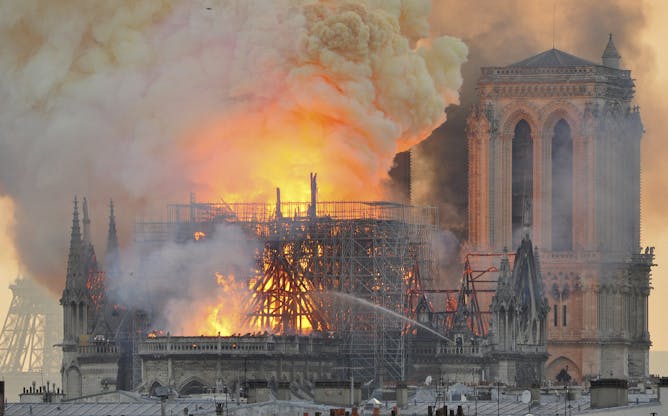
Flames and smoke rise as fire rages in the Notre Dame Cathedral in Paris.
AP Photo/Thierry Mallet
Maile Hutterer, University of Oregon
The Notre Dame Cathedral was long a powerful symbol of church authority - but it wasn't static. The design kept changing to keep up with the changing times.
|
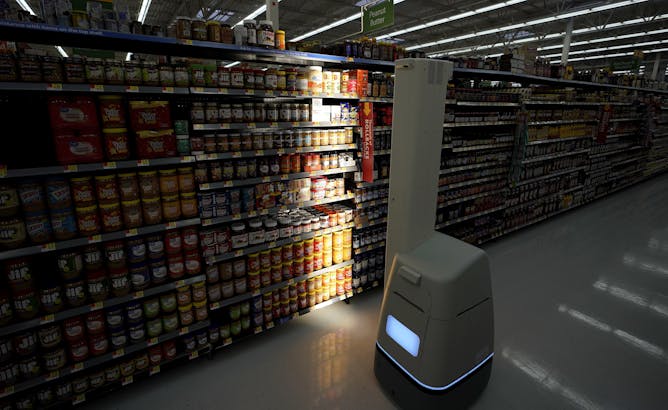
Who needs a worker checking shelves when you have a robot?
AP Photo/David J. Phillip
Beth Humberd, University of Massachusetts Lowell; Scott F. Latham, University of Massachusetts Lowell
Two management experts devised a new way to predict whether your job is likely to get stolen by a robot – and what you can do about it.
|
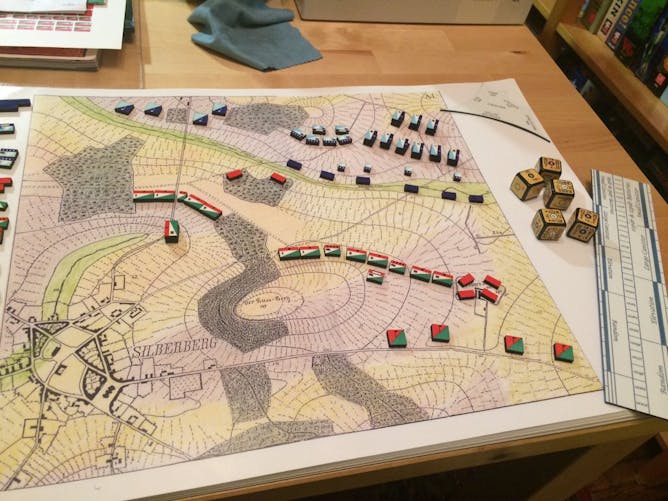
A board for the Prussian wargame of ‘Kriegsspiel.’
Matthew Kirschenbaum/Wikimedia Commons
David Banks, American University School of International Service
War games let you test your political and military acumen right at your kitchen table – while also helping you appreciate how decision-makers are limited by the choices of others.
|
Environment + Energy
|

Greg Asner, Arizona State University
A new study lays out a road map for protecting and restoring 50% of Earth's surface, targeted to preserve biodiversity and maximize natural removal of carbon from the atmosphere.
| |
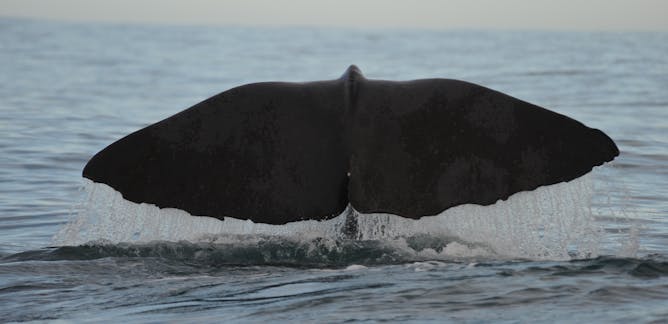
Heidi Pearson, University of Alaska Southeast
Protecting forests and wetlands, which absorb and store carbon, is one way to slow climate change. Scientists are proposing similar treatment for marine animals that help store carbon in the oceans.
|
|
|
Economics + Business
|

Andreas Kern, Georgetown University
President Trump has been attacking the Federal Reserve for months and recently said he might nominate two political allies to its board. An economist explain what typically happens next.
| |

William M. LeoGrande, American University School of Public Affairs
The Trump administration has declared the most severe new sanctions against Cuba since President John F. Kennedy imposed an economic embargo banning all trade with the communist island in 1962.
|
|
|
Education
|
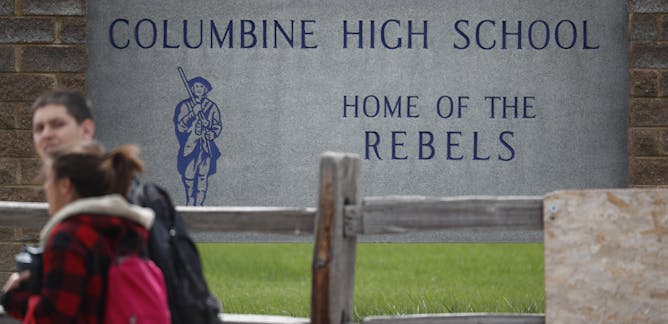
Jillian Peterson, Hamline University ; James Densley, Metropolitan State University
Media coverage of the Columbine school shooting that took place in 1999 has ended up becoming a playbook for school shooters in the United States and beyond, an analysis of school shootings reveals.
| |
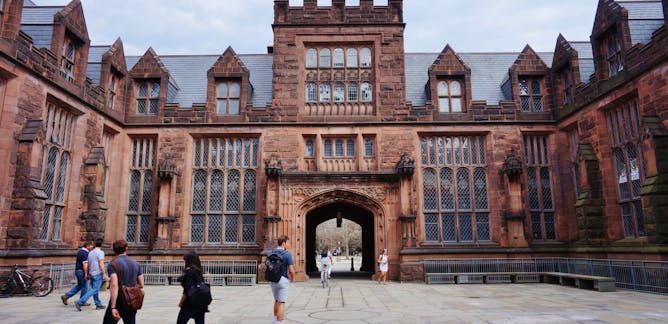
Jonathan Smith, Georgia State University; Patrick Rooney, University of Toronto
When scandals take place at a college, the natural reaction for some people is to avoid the school. But two economists suggest potential applicants think hard about their decision.
|
|
|
Ethics + Religion
|

David Mislin, Temple University
Pete Buttigieg's recent comments on Christian values, have drawn much attention. They might be quite similar to the ideals espoused by the Midwestern progressive Social Gospel Movement.
| |
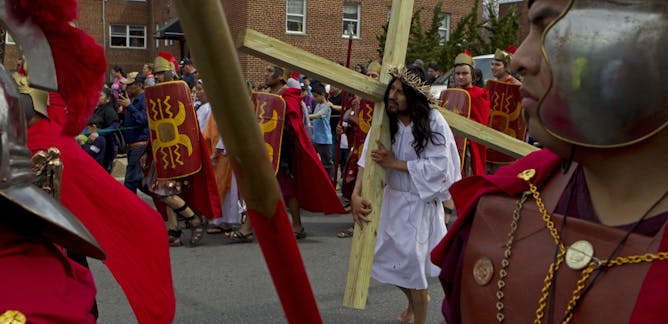
Daniel Joslyn-Siemiatkoski, Seminary of the Southwest
On Good Friday, Christians give thanks for their salvation, which they believe was made possible by the suffering of Jesus. But for Jews, it was common in the Middle Ages to be attacked with stones.
|
|
|
Arts + Culture
|

Laurel Elder, Hartwick College; Steven Greene, North Carolina State University
Could mothers be responsible for the gender gap? Or are other factors at play?
| |
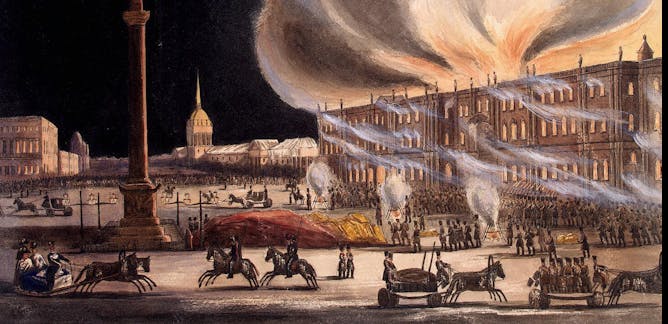
Paul W. Werth, University of Nevada, Las Vegas
After the building that symbolized 'all that is Russian' went up in flames, the czar scrambled to restore it to its former glory.
|
|
|
Health + Medicine
|
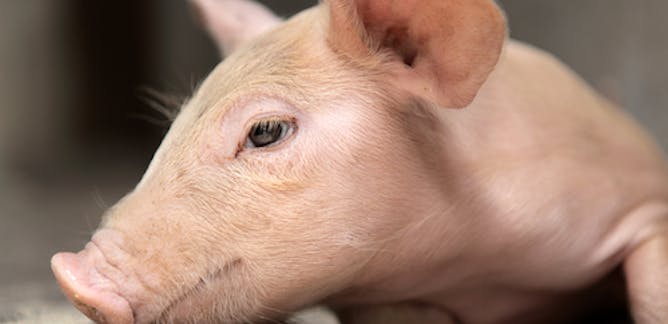
Katharina Busl, University of Florida
A recent study on the brains of pigs suggested that some activity could be restored even after the porkers had been dead for four hours. A neuroscientist who specializes in brain death explains.
| |
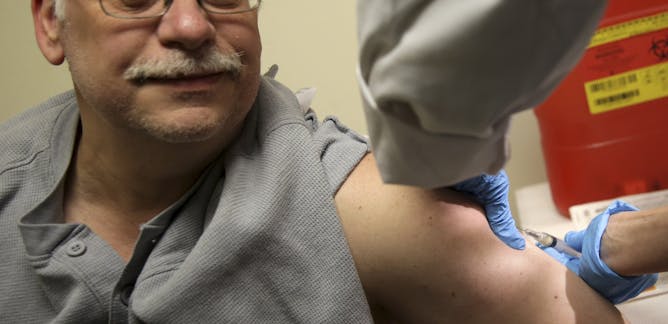
Eyal Amiel, University of Vermont
The growing number of cases of measles has many people asking: Am I safe? A vaccine expert provides some answers.
|
|
|
Politics + Society
|

Lena Surzhko-Harned, Pennsylvania State University
The blurring of politics and entertainment has become an issue in democracies around the world. But the forthcoming Ukrainian election is in a league of its own.
| |
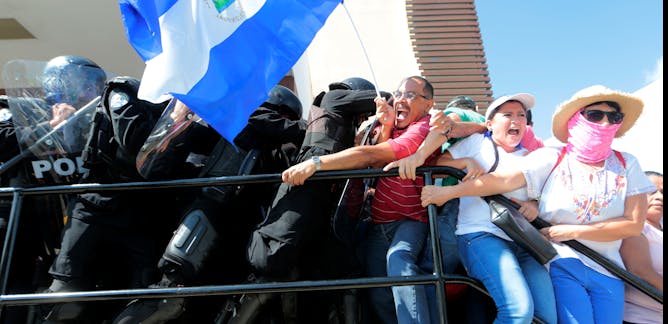
Benjamin Waddell, Fort Lewis College
A massive protest movement exploded across Nicaragua in April 2018, threatening to topple the country's authoritarian regime. What happened to Central America's 'tropical spring?'
|
|
|
Science + Technology
|

John C. Besley, Michigan State University; Anthony Dudo, University of Texas at Austin
Connecting with an audience in a productive way can mean first figuring out what they think, feel and believe before you start sharing your message.
| |
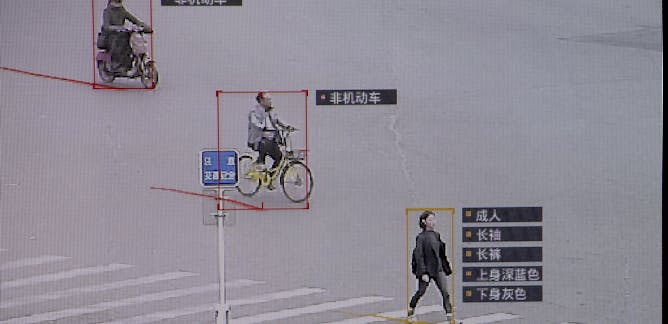
James Hendler, Rensselaer Polytechnic Institute
AI can help make government more efficient – but at what cost? Citizens' lives could be better or worse, based on how the technology is used.
|
|
|
| |
| |
| |
| |
| |
| |
|
|
|
|
|
|
|